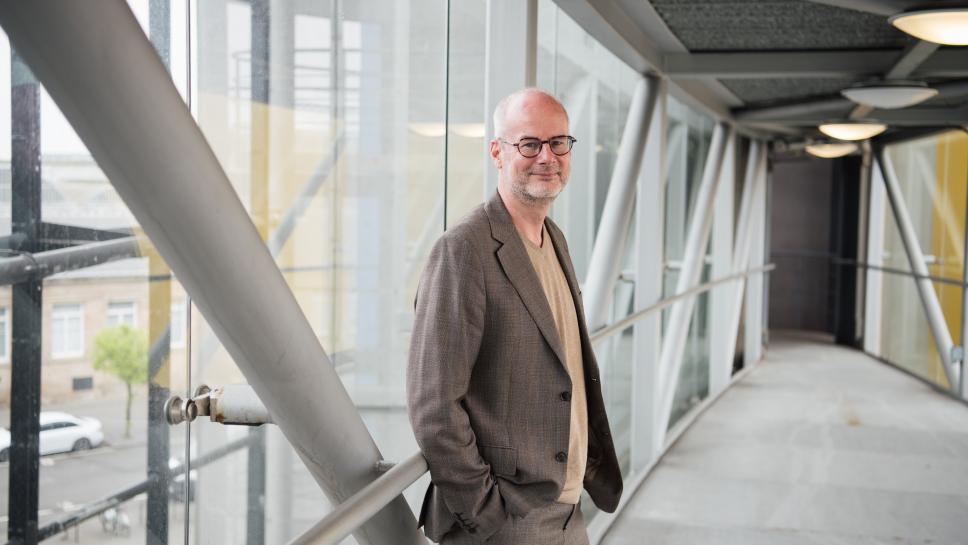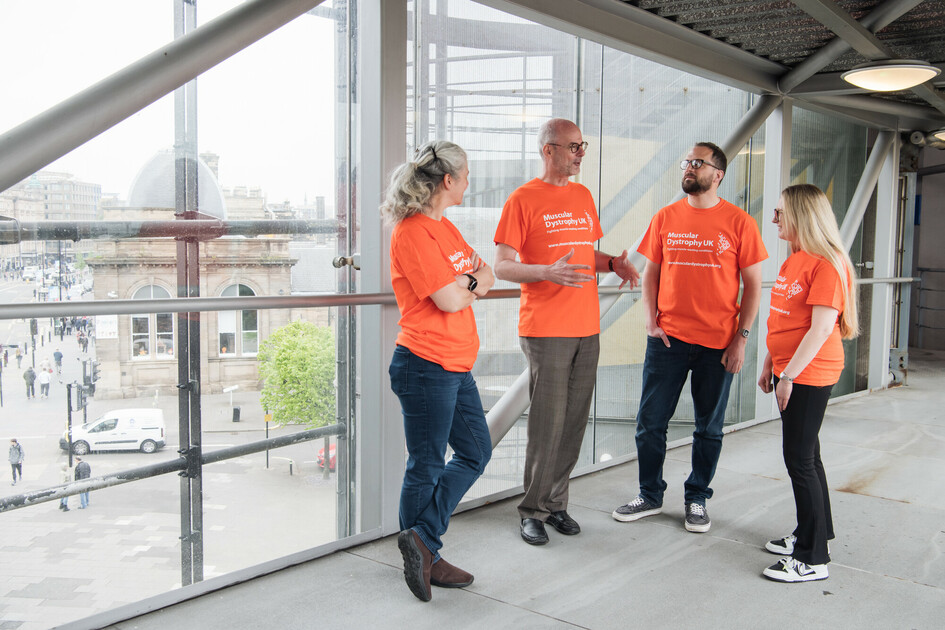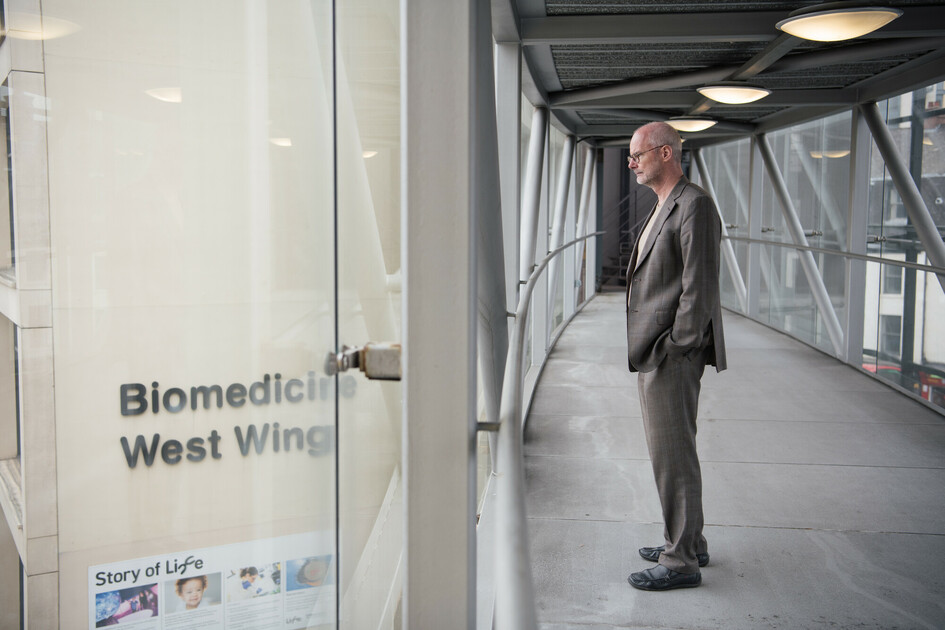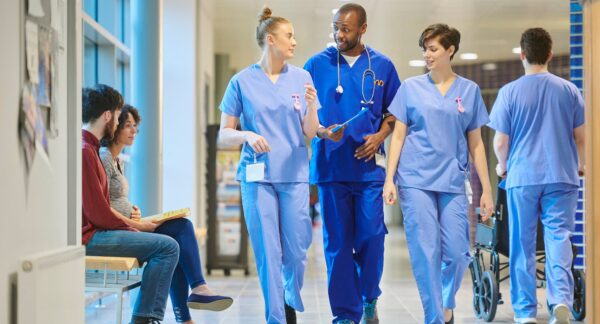MDUK’s research communications officer Dr Andrea Gubas met up with Professor Volker Straub, director of the John Walton Muscular Dystrophy Research Centre at Newcastle University, to chat to him about his upcoming team skydiving fundraiser, the importance of teamwork, and the research undertaken at the John Walton Muscular Dystrophy Research Centre.
(Sky)dive into research – my chat with Professor Volker Straub

Researchers often highlight the importance of teamwork. I worked in an academic environment for nearly 10 years, and I can confirm first-hand how the greatest breakthroughs are achieved through close collaborations, networking, and teamwork.
So, I guess I wasn’t too surprised when Professor Volker Straub, director of John Walton Muscular Dystrophy Research Centre (JWMDRC) at Newcastle University, mentioned how teamwork is an integral part of the research undertaken at the JWMDRC, and how important he finds building relationships with colleagues and collaborators to be.

Teamwork is one of the main reasons Professor Straub chose skydiving as an activity to raise funds for Muscular Dystrophy UK. He gathered five other colleagues, and in June they will all jump out of a plane. When asked why he finds it important to raise awareness and funds for MDUK, Professor Straub responded:
‘Our mission statement is about improving the diagnosis, care, and treatment for people with neuromuscular conditions. We have a long-standing collaboration with MDUK, and it’s great to also support a charity in the same way the charity supports us when it comes to grants.’
The nerves haven’t kicked in yet, he says, but he expects they will when the team is on its way to the airfield next month. We will all be rooting for them!
Apart from wanting to know how he feels about the skydive, I wanted to speak to Professor Straub to learn more about the research undertaken at the JWMDRC. With around 100 members of staff, the centre focuses on a wide range of neuromuscular conditions, including ultra-rare conditions, such as limb girdle muscular dystrophy, Pompe disease, congenital myopathies and more.
To better understand any condition and to be able to find a treatment or cure, researchers start from scratch, performing basic research. Doing so, researchers can uncover the detailed processes underlying each condition and determine if something has gone wrong and how to fix it. This is the start of any pathway to treatments. At the JWMDRC, a lab-based basic research team led by Professor Jordi Diaz Manera are looking to understand just that – how a certain condition is caused, what happens in the muscles of a person with a neuromuscular condition and what can be done to improve it. One of their main goals is the identification of new genes, changes in which can cause muscular dystrophy or other muscle-wasting conditions. This is an essential part of research, as many people to this day remain undiagnosed.
The JWMDRC is also home to a large clinical research team, led by Professor Michela Guglieri, involved in clinical trials. The centre currently participates in around 30 clinical trials for various conditions. While most of these clinical trials are interventional (those that seek to improve health or survival by some action, for example by using a drug), there are also some natural history (observational) studies.
Along with basic and clinical research, the JWMDRC also provides a clinical service, led by Dr Chiara Marini Bettolo. As part of the clinical service, there is a team in charge of patient registries. Patient registries are databases that contain information about people living with a specific neuromuscular condition. The registries can help recruit participants for clinical trials and research studies, inform registry participants about any research news and in many ways act as a link between patients and research communities.
And while there are over 100 people working across various teams at the JWMDRC, including researchers, clinicians and professors, Professor Straub insists they all work as one team. Collaboration is key to successful achievements at the JWMDRC and will continue to be an integral part of future work.

I found my discussion with Professor Straub instructive and enjoyable. And I wish the best of luck to the team for June! Their teamwork and dedication are helping us build the foundational understanding we need to develop new and better treatments for muscle-wasting conditions. The skydive is just one small part of what they are doing that shows they mean business!


